Winter School for Enhancing Research Skills: A SIG-III Initiative
Scope
The Winter School presents a combination of workshops and sponsored ASIS&T webinars to train information science professionals in developing their research skills through various tools and techniques for understanding social behavior, analyzing large datasets using tools and techniques such as Machine Learning, R, Word Vectors, Embeddings, Language, and Graphic Generative AI, Digital Wellness and Information Ethics.
Eligibility
Workshops are intended for ASIS&T members who are doctoral scholars, post-doctoral scholars, and early career professionals. ASIS&T members from developing countries (ASIS&T Tier 1 and ASIS&T Tier 2) are especially encouraged to register. Each workshop will accommodate up to 25 participants.
Scholarships
A few scholarships are available for participants from Tier 1 and 2 countries. Each participant is eligible for a scholarship for any ONE workshop of their choice. If interested please submit your CV and a Statement of Interest indicating how this workshop will benefit you to sigiiiasist@gmail.com.
Delivery
Each workshop's duration is six hours and will be conducted over two days with each session of three hours per day on specific topics as given below. All sessions are virtual and synchronous.
Price per Workshop
$50 - Standard member rate
$10 – Tier 1 member rate, new members will be given membership with registration.
$5 – Tier 2 member rate, current members will get an additional year of membership with the registration.
Workshops
Exploring Python for Data Analysis and Machine Learning in the Humanities (17th & 19th November 2023; 10AM to 1PM ET)
About the Workshop:
Instructional Design Plan
Session 1: Introduction to Python (1 Hour)
Session 2: Working with Data in Python (1.5 Hours)
Session 3: Visualizing Humanities Data in Python (1.5 Hours)
Session 4: Intro to Machine Learning in Python (1 Hour)
Session 5: Hands-on Machine Learning Project (1 Hour)
Session 6: Q&A and Next Steps (0.5 Hour)
Target Audience: Beginners and novices interested in data analysis, data visualization, and machine learning using Python, particularly in the context of humanities data.
Duration:
6 hours of active instruction (spread over multiple sessions) with 15 hours of break time.
 Instructor: Daniel Agbaji is a seasoned researcher, software developer, and data scientist from Nigeria. He earned his Master of Science (MSc.) and Master of Library and Information Science (MLS) degrees from Emporia State University, Kansas, USA, and currently studying to earn his doctorate at the University of North Texas (UNT). His research area is applied artificial intelligence, machine learning, software development, data science, information science, and emerging technologies. He teaches the data analysis and knowledge discovery course to the master’s students at UNT. He is passionate about empowering others to learn relevant data science skills.
Instructor: Daniel Agbaji is a seasoned researcher, software developer, and data scientist from Nigeria. He earned his Master of Science (MSc.) and Master of Library and Information Science (MLS) degrees from Emporia State University, Kansas, USA, and currently studying to earn his doctorate at the University of North Texas (UNT). His research area is applied artificial intelligence, machine learning, software development, data science, information science, and emerging technologies. He teaches the data analysis and knowledge discovery course to the master’s students at UNT. He is passionate about empowering others to learn relevant data science skills.
Introduction to Plotting Social Networks with R (7th & 8th December 2023; 10AM to 1PM ET)
About the Workshop:
Scope: This workshop will introduce using R and the package iGraph to make social network visualizations. Participants with little to no R experience should be able to keep up. Beyond the visualization construction, we will explain some of the uses and concepts of social network analysis, how to make custom plots, and how to modify the code from class for their own use later.
Pre-requisites:
- Skills: none, but some programming would be helpful
- Laptop: Windows or Apple/Mac
- Software: R/RStudio (free to install https://posit.co/download/rstudio-desktop/
Outcomes:
- Participants will understand the data structures used in social network analysis and be able to build their own simple example networks.
- Participants will be able to open and plot social network data to make social network graphs.
- Participants will be able to use functions in the iGraph R package to identify influential and important actors using simple network measures.
- Participants will be able to customize visual aspects of the plot to highlight features of the network itself and actors within the network.
- Participants will be able to interpret social network visualizations.
Instructors:

Dr. Jeff Hemsley is an Associate Professor at the School of Information Studies at Syracuse University and an Associate Editor at the Journal of Information Technology and Politics. He earned his Ph.D. from the University of Washington’s Information School. His research is about understanding information diffusion, particularly in the context of politics or social movements, in social media. He is co-author of the book Going Viral (Polity Press, 2013 and winner of ASIS&T Best Science Books of 2014 Information award and selected by Choice magazine as an Outstanding Academic Title for 2014), which explains what virality is, how it works technologically and socially, and draws out the implications of this process for social change.
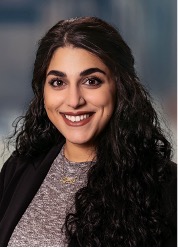 Christy is a PhD Student at the Syracuse University School of Information Studies. Her research examines crisis events and their communication in contemporary social media platforms using mixed-methods approaches. Specifically, she examines the collective information behaviors and use of TikTok for crisis events in Lebanon. Before starting her Ph.D., Christy worked in risk and management consulting.
Christy is a PhD Student at the Syracuse University School of Information Studies. Her research examines crisis events and their communication in contemporary social media platforms using mixed-methods approaches. Specifically, she examines the collective information behaviors and use of TikTok for crisis events in Lebanon. Before starting her Ph.D., Christy worked in risk and management consulting.
Word Vectors & Embeddings (11th & 13th December 2023, 8AM to 11 AM ET)
About the Workshop: This workshop will cover the use of word vectors and embeddings for social science and digital humanities applications. It will be taught in R and Python. The first part of the workshop will review the history of word vectors and embeddings in the social sciences. It will go on to teaching how to estimate your own embedding layers. The second half will review applications of word embeddings to answer relevant questions in the social sciences and digital humanities. The focus here will be on replication of existing research as well as applications to additional questions.
Pre-requisites:
- Have R and RStudio installed
- Have Python and Visual Studio Code (or code interpreter you prefer) installed
 Instructor: Dr. Christopher Barrie is Lecturer in Computational Sociology at the University of Edinburgh. He specializes in the study of protest, conflict, and communication. He is particularly interested in advancing the use of digital trace, news, and communications data to study populations that have traditionally been 'hard-to-reach' in the empirical social sciences.
Instructor: Dr. Christopher Barrie is Lecturer in Computational Sociology at the University of Edinburgh. He specializes in the study of protest, conflict, and communication. He is particularly interested in advancing the use of digital trace, news, and communications data to study populations that have traditionally been 'hard-to-reach' in the empirical social sciences.
2024 Webinars
Enhancing Metacognitive Awareness & Metaliteracy Skills Towards Becoming a Self-Determined Researcher (25 January 11 AM ET)
About the Webinar:
Metacognition is essentially the critical self-reflection or thinking about one’s own thinking. Metacognition is one of the domains of metaliteracy. Metaliteracy is a requirement for successful research. It promotes critical thinking and collaboration in a connected world, providing a comprehensive framework to effectively participate in social media and online communities. It is a unified construct that supports the acquisition, production, and sharing of knowledge in collaborative online communities. Metaliteracy challenges traditional skills-based approaches and expands on traditional information literacy. This allows to consider the related literacy types and incorporating emerging technologies. Standard definitions of information literacy are insufficient for the revolutionary social technologies as well as research trend in our changing world.
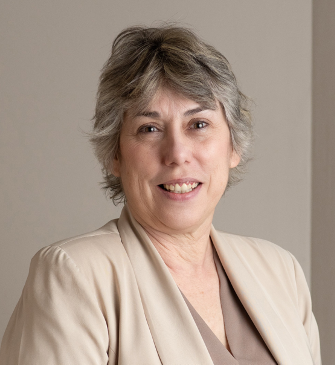
Instructor: Dr. Brenda van Wyk (PhD; M.Ed; M.Inf) is currently a senior academic in the EBIT Faculty at the University of Pretoria. Previous positions include the Head of LIS, The IIE, and the Dean of Research at the IIE. She has been responsible for literacy teaching, postgraduate supervisor training, and postgraduate support in her current as well as previous positions. She has a passion for technology-assisted teaching and learning towards digital inclusion and cognitive social justice. Her research interests include open scholarship, metaliteracy, ABET, and information and research ethics. She serves on the steering committee of ACEIE. She was instrumental in the planning and implementing open-access research repositories. She is the Managing Editor of a DHET-accredited journal: the Independent Journal of Teaching and Learning (IJTL). She is the Co-Chair of ICIL-Africa. She has published several manuscripts and articles in academic journals, chapters in books, and conference proceedings. She is a research associate with JET Education Services
Information Ethics & Digital Wellness Toolkit (1 February 11 AM ET)
About the Webinar: Digital wellness refers to the notion of “being well in a digital society”. This is a very important consideration especially nowadays due to the prevalence of ICTs. Since ICTs permeate all sectors of society, a more user-friendly term was developed – Digital Wellness. Digital Wellness is characterized by the ability of the user to discern between the dangers and opportunities found in cyberspace, act responsibly, and align his/her online behavior with their offline values. It is wrong to assume that being digitally well is only applicable to adults who have extensive access to mobile devices and computers. Rather, this is of even more importance to children and young adults who are growing up using these devices either at home or at school or both. Following this need, nine books were developed by the ACEIE and the Information Science Department, in 2015 and 2016, in partnership with, inter alia, Intel Education, the UNESCO Information for All Programme (IFAP), the South African Department of Telecommunications and Postal Services (DTPS) and Department of Basic Education (DBE), addressing issues pertaining to Digital Wellness. The Digital Wellness Toolkit offers an easy-to-use format (printed and electronic books) and illustrative means to convey key concerns.
 Instructor: Naailah Parbhoo is a full-time lecturer at the University of Pretoria, Department of Information Science. She lectures various modules varying from first year- Introduction to Information Communication Technologies, second year- Social and ethical impacts- information ethics, third year- competitive intelligence and honours- Organisation, retrieval and seeking of information. From 2014, she was the junior research officer for the African Centre of Excellence for Information Ethics that is based in the Department of Information Science. In 2017, she became the office manager where she coordinated digital wellness workshops at National Health Insurance sites with the South African Department of Telecommunications and Postal Services. As for 2020, she became the ACEIE convenor. She is also a member of the following: Gold Key, ASIS&T, ASIS&T African Chapter, SIG-III and LIASA.
Instructor: Naailah Parbhoo is a full-time lecturer at the University of Pretoria, Department of Information Science. She lectures various modules varying from first year- Introduction to Information Communication Technologies, second year- Social and ethical impacts- information ethics, third year- competitive intelligence and honours- Organisation, retrieval and seeking of information. From 2014, she was the junior research officer for the African Centre of Excellence for Information Ethics that is based in the Department of Information Science. In 2017, she became the office manager where she coordinated digital wellness workshops at National Health Insurance sites with the South African Department of Telecommunications and Postal Services. As for 2020, she became the ACEIE convenor. She is also a member of the following: Gold Key, ASIS&T, ASIS&T African Chapter, SIG-III and LIASA.
She holds various qualifications including a Bachelor’s and Honours Degree in Information Science as well as a Masters in Information Technology (specializing in Library and Information Science). She is currently studying a PhD in Information Science titled “How can an understanding of the information behaviour of cold case investigators inform the design of systems supporting their information needs and information behaviour?”. Her research interests include: information behaviour, information retrieval, cold case investigations, information ethics, digital wellness and competitive intelligence.
Information Ethical Considerations of Generative AI: Research, Teaching & Learning
(8 February 11 AM ET)
About the Webinar
Outcomes:
After completion of this webinarthe participants will:
- have a better understanding of what generative AI is:
- have a better understanding of what Information Ethics is:
- be aware of the IE implications of Generative AI:
- be able to use some generative AI platforms in Research:
- be able to use some generative AI platforms in Teaching and Learning.
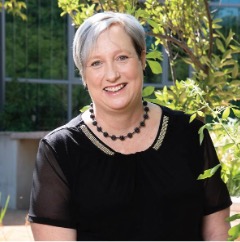 Instructor: Prof. Holmner obtained a BA degree from the University of Pretoria in 1995, and a BA (Hons) in Information Science (Cum Laude) in 1997. This was followed in 1999 by an MA in Information Science (Cum Laude) from the same institution. Prof. Holmner completed her D (Phil) in 2008 with the title: A Critical Analysis of Information and Knowledge Societies with specific reference to the interaction between local and global knowledge systems. Marlene is an Associate Professor in the Department of Information Science, at the University of Pretoria, South Africa. Marlene serves on the Information Technology for Development Editorial Board, and several other journal editorial boards. She is also active in ASIS&T, serving as an officer in 2021-2023 and a Steering Committee member of the African Center of Excellence in Information Ethics. Marlene publishes primarily in the areas of information ethics, information
Instructor: Prof. Holmner obtained a BA degree from the University of Pretoria in 1995, and a BA (Hons) in Information Science (Cum Laude) in 1997. This was followed in 1999 by an MA in Information Science (Cum Laude) from the same institution. Prof. Holmner completed her D (Phil) in 2008 with the title: A Critical Analysis of Information and Knowledge Societies with specific reference to the interaction between local and global knowledge systems. Marlene is an Associate Professor in the Department of Information Science, at the University of Pretoria, South Africa. Marlene serves on the Information Technology for Development Editorial Board, and several other journal editorial boards. She is also active in ASIS&T, serving as an officer in 2021-2023 and a Steering Committee member of the African Center of Excellence in Information Ethics. Marlene publishes primarily in the areas of information ethics, information
Organizers
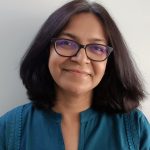
Dr. Bhakti Gala
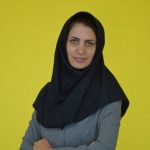
Dr. Leili Seifi
Dr. Leili Seifi is an Associate Professor at the University of Birjand, Iran. She was awarded an Erasmus Mundus postdoc scholarship at the University of Warsaw in Poland. She was the organizer of the first international conference on the design and development of public library services; patterns, experiences, and ideas in Iran in May 2022. Dr. Seifi has contributed to the profession in different voluntary positions worldwide. Dr. Seifi’s field of Interest is Intangible Cultural Heritage Preservation, Vulnerable Populations Information Needs, and Public Libraries Studies.

Dr. Manika Lamba
Dr. Manika Lamba is a Postdoctoral Research Associate at the University of Illinois Urbana-Champaign. She earned her Ph.D. in Library and Information Science from University of Delhi. She is the Chair of the Professional Development Sub-Committee and Elected Standing Committee Member at IFLA Science and Technology Libraries Section. Moreover, she is the Editor-in-Chief of the International Journal of Library and Information Services (IJLIS). In addition to publishing scholarly articles, she has published two books. Recently, she received the "Best Volunteer Award" from ASIS&T SIG-III. Her research focuses on information retrieval, digital libraries, health & social informatics, and scholarly communication using text mining, natural language processing, and machine learning techniques.

Naailah Parbhoo
Naailah Parbhoo is a full-time lecturer at the University of Pretoria, Department of Information Science. She lectures various modules varying from first year- Introduction to Information Communication Technologies, second year- Social and ethical impacts- information ethics, third year- competitive intelligence and honours- Organisation, retrieval and seeking of information. From 2014, she was the junior research officer for the African Centre of Excellence for Information Ethics that is based in the Department of Information Science. In 2017, she became the office manager where she coordinated digital wellness workshops at National Health Insurance sites with the South African Department of Telecommunications and Postal Services. As for 2020, she became the ACEIE convenor. She is also a member of the following: Gold Key, ASIS&T, ASIS&T African Chapter, SIG-III and LIASA.

Dr. Fatih Oguz
Dr. Fatih Oguz is an associate professor of library and information science at the University of North Carolina at Greensboro. Oguz received his PhD at the University of North Texas. His research focuses on the interactions between people and technology, with an emphasis on the impact of information technologies on human communication behavior and social life.

Dr. Ruwan Gamage
Dr. Ruwan Gamage is a Senior Lecturer at the National Institute of Library and Information Sciences (NILIS), University of Colombo, Sri Lanka. He is currently on a teaching assignment at the Maldives National University. He is a Chartered Librarian and a Sri Lanka Library Association Fellow. He has served as the President of the Sri Lanka Library Association (2020/2021) and the Chair of the South Asia Chapter of the ASIS&T (2021/2022). Dr. Ruwan obtained his Ph.D. from Wuhan University, PR China 2008. His interests in the library and information teaching and research are diverse. He researches public libraries, library automation and digital libraries, information literacy, resource organization, and the history of librarianship.

Sourav Debnath
Sourav Debnath works as an Assistant Librarian at IIT (ISM) Dhanbad, India. Before joining IIT (ISM) Central Library, he was an Assistant Librarian at NIT Tiruchirappalli for four years. Sourav was a Junior Research Fellow at DRTC, ISI Bangalore, for a year after obtaining MLIS from the Central University of Gujarat. A recipient of the Indian Library Association's Dr. K Padma Umapathy and KS Umapathy student fellowship in Lib. & Info. Sc. He served the ASIS&T South Asia Chapter as a Social Media Manager and Secretary from 2018 to 2022. Besides volunteering as a newsletter officer for SIG-III, he loves reading autobiographies in his leisure time.

Dr. Shalini Urs
Dr. Shalini Urs is professor emerita at the Department of Library and Information Science of the University of Mysore, India, and Founder Executive Director of the International School of Information Management, conceived and established by her with munificent grants from the Ford Foundation and Informatics India in 2005 as the first iSchool in India. Passionate about digital scholarship, Shalini pioneered the Electronic Theses and Dissertations (ETD) movement in India with the Vidyanidhi Digital Library project in 2000 with funding from the National Information System for Science and Technology (NISSAT), Department of Scientific and Industrial Research, Government of India.
